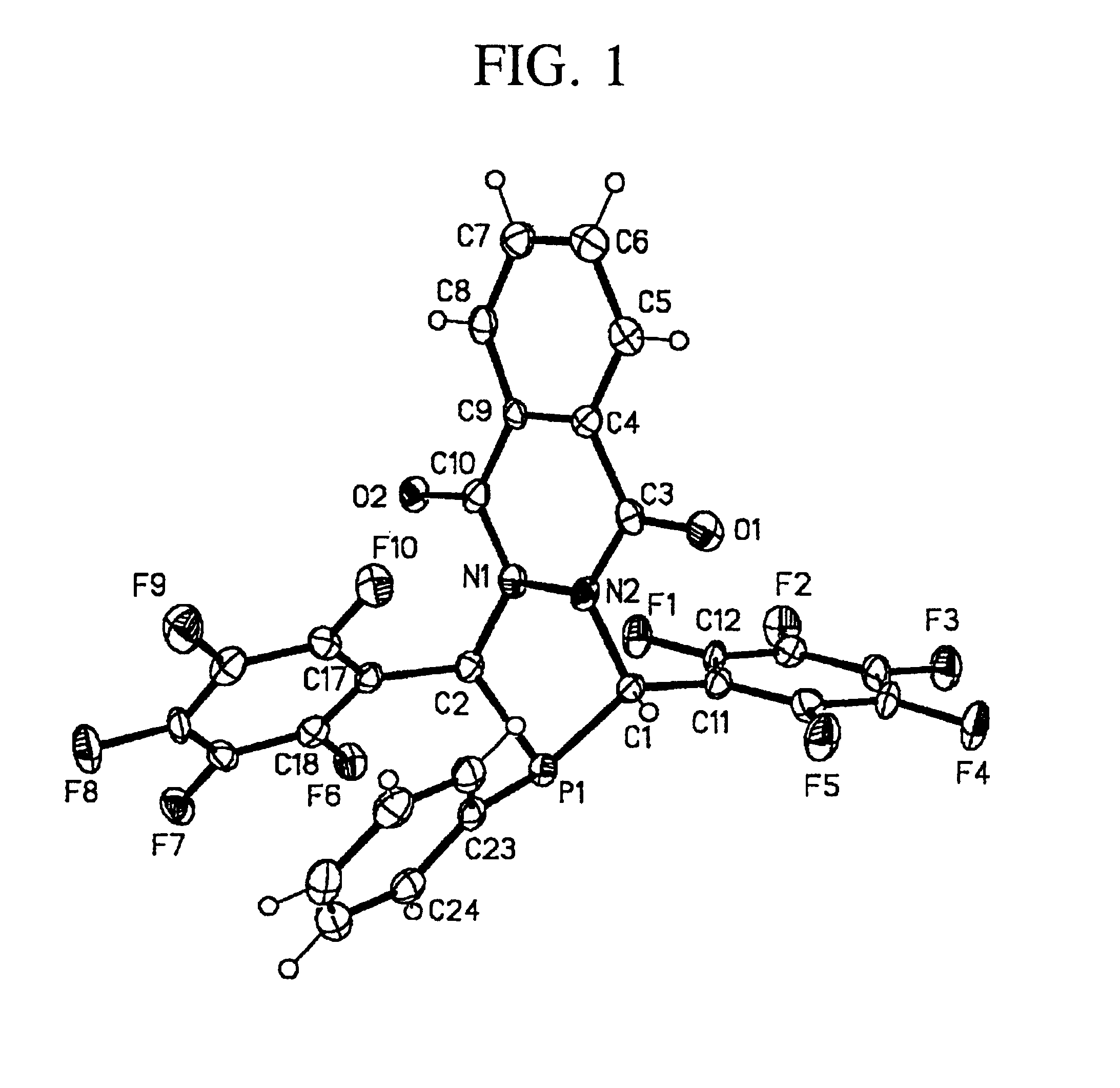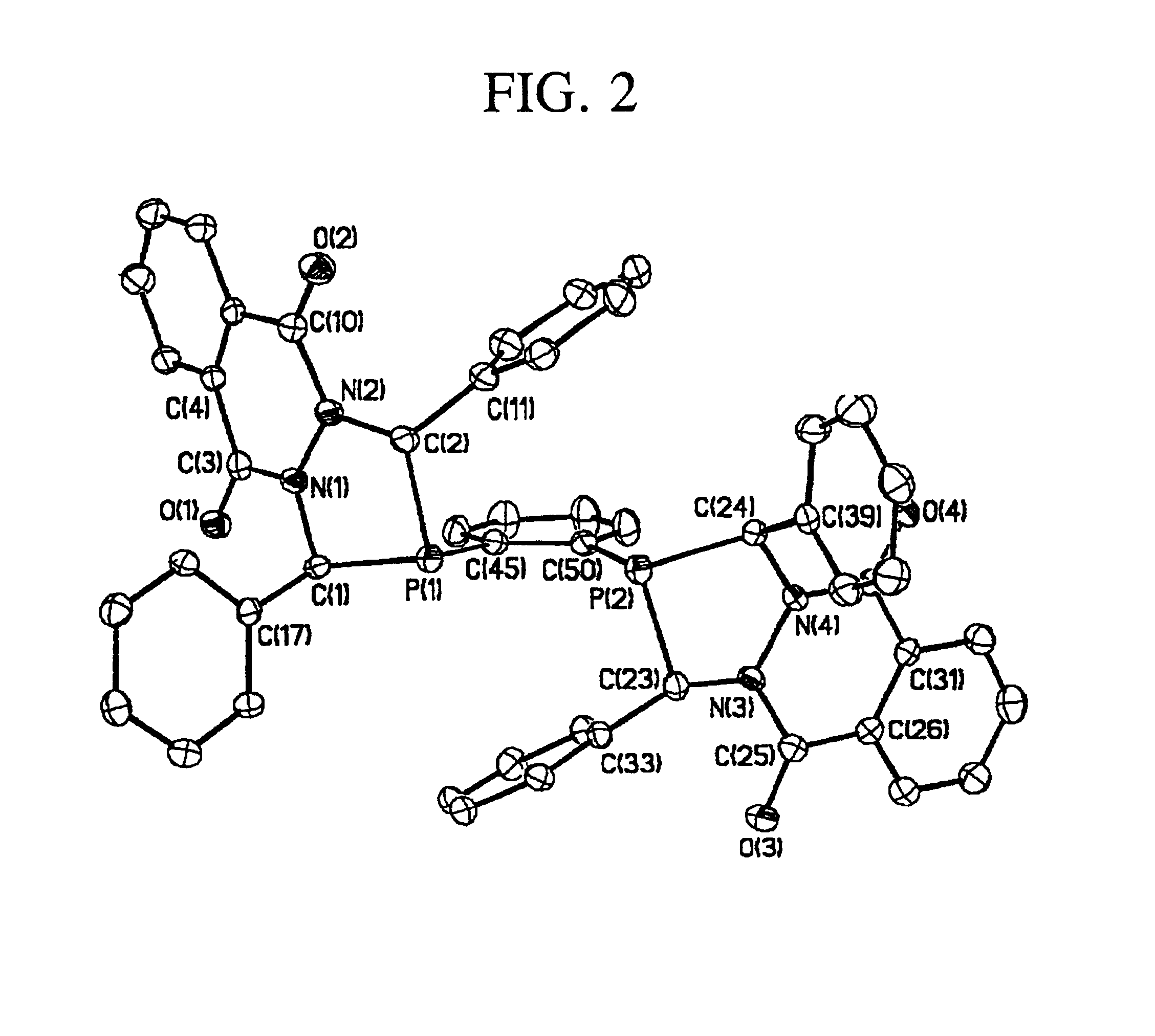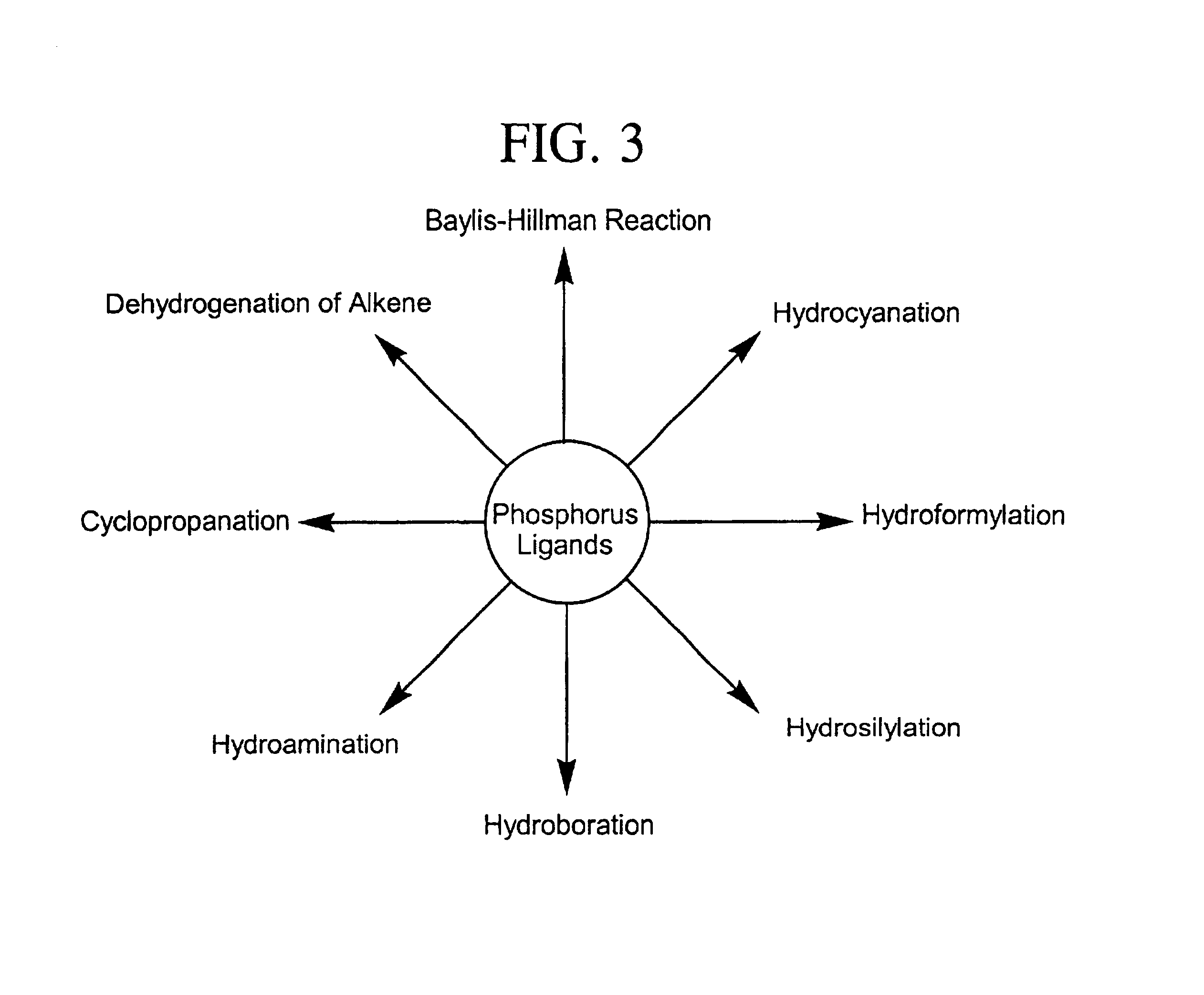Diazaphosphacycles
a technology of diazaphosphacycles and diazaphosphacycles, applied in the field of diazaphosphacycles, can solve the problems of difficult and expensive production, prevented the synthesis of libraries of such compounds for use in analyzing structure property relationships, and limited synthetic methodology
- Summary
- Abstract
- Description
- Claims
- Application Information
AI Technical Summary
Problems solved by technology
Method used
Image
Examples
examples
[0140]General Considerations
[0141]Routine NMR characterization experiments, 1H NMR (300 and 500 MHz), 13C NMR (75.462 and 125.7 MHz), 19F NMR (282 MHz), and 31P NMR (121.49 and 202.4 MHz) were carried out on a Bruker AC-300 or a Varian 500 NMR spectrometer. 1H NMR data are reported as follows: chemical shift (multiplicity (b=broad, s=singlet, d=doublet, t=triplet, q=quartet, and m=multiplet), and integration). Chemical shifts for 1H NMR spectra are reported in ppm downfield from internal tetramethylsilane (TMS, δ scale) using residual protons in the deuterated solvents (C6D6, 7.15 ppm; CDCl3, 7.25 ppm; and CD2C12, 5.3lppm) as references. 13C and 31P NMR spectra were obtained using 1H decoupling, and the chemical shifts are reported in ppm vs. Me4Si (CDCl3 at 77 ppm and C6D6 at 128 ppm) and 85% H3PO4 standard (external), respectively. Elemental analyses were provided by Desert Analysis (Phoenix, Ariz.).
[0142]CDCl3 solvents were purchased from Aldrich Chemical (Milwaukee, Wis.), disti...
PUM
| Property | Measurement | Unit |
|---|---|---|
| temperature | aaaaa | aaaaa |
| temperature | aaaaa | aaaaa |
| temperature | aaaaa | aaaaa |
Abstract
Description
Claims
Application Information
 Login to View More
Login to View More - R&D
- Intellectual Property
- Life Sciences
- Materials
- Tech Scout
- Unparalleled Data Quality
- Higher Quality Content
- 60% Fewer Hallucinations
Browse by: Latest US Patents, China's latest patents, Technical Efficacy Thesaurus, Application Domain, Technology Topic, Popular Technical Reports.
© 2025 PatSnap. All rights reserved.Legal|Privacy policy|Modern Slavery Act Transparency Statement|Sitemap|About US| Contact US: help@patsnap.com



